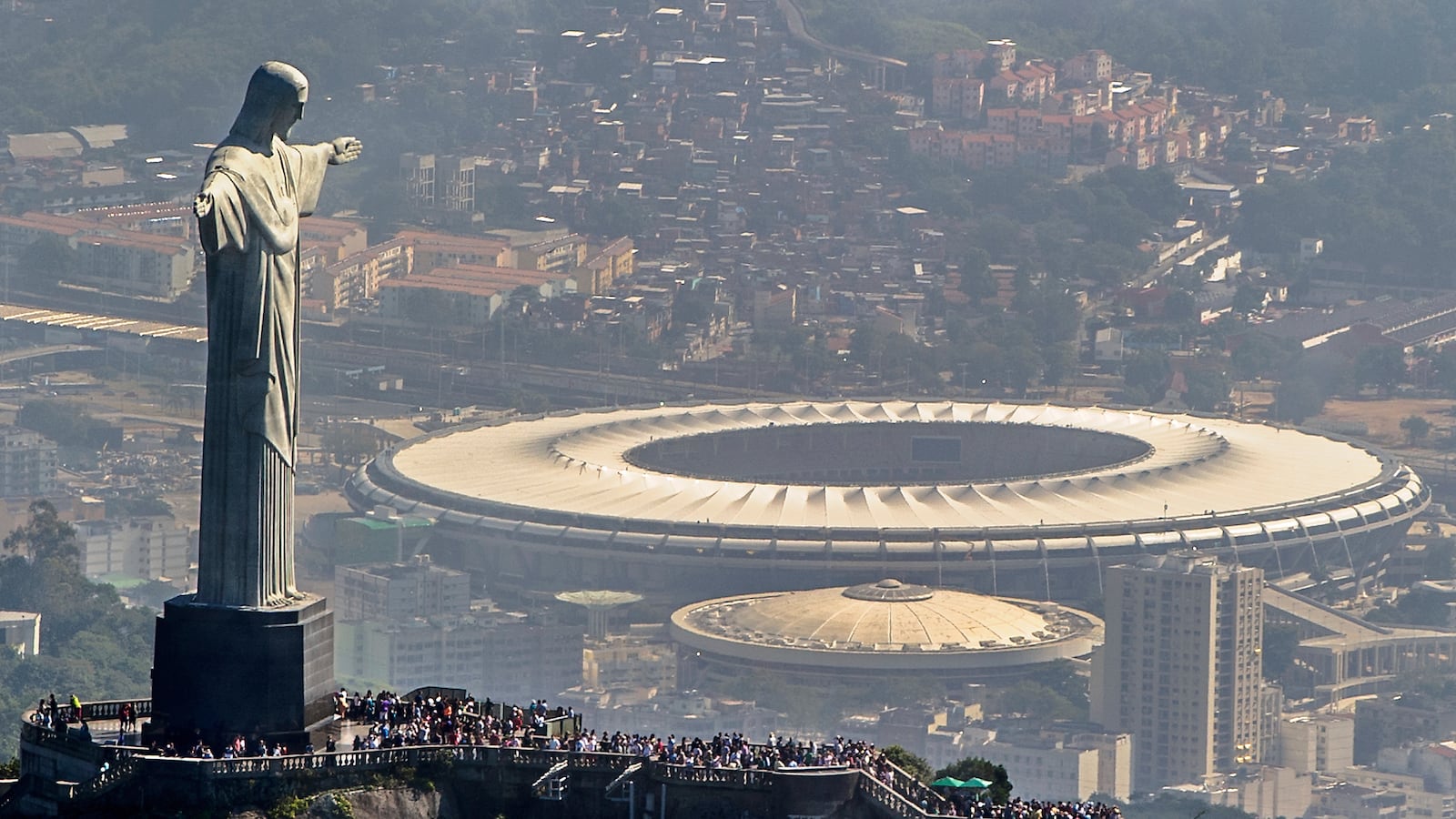With less than a year to go before Brazil plays host to the 31st Summer Olympics, the country’s turbulent fiscal and political woes have trickled down to the all-important Olympics opening ceremony—forcing Rio 2016’s artistic team to get creative.
“We have a problem here: Brazil is in a sort of crisis,” Oscar-nominated filmmaker Fernando Meirelles admitted Thursday via Skype from the heart of the Amazon in northern Brazil.
That crisis has hit Brazil on multiple fronts, and hard. The high-reaching Petrobras corruption scandal, last year’s controversy-plagued World Cup, and lingering sewage and public works issues around the city join dire economic times for Brazil, which has slipped into a recession that some analysts predict could last through 2016.
“We have a very interesting concept for the opening, but it won’t be an extravaganza like Beijing or London,” said Meirelles, one of three homegrown filmmakers tapped to serve as creative directors of Rio de Janeiro’s August 2016 ceremony. “Our budget is 20 times less than Beijing! So we’re really struggling to be consistent, with no money.”
Luckily, Meirelles, arguably Brazil’s most renowned working filmmaker, possesses a resourcefulness borne from three decades of independent filmmaking. His acclaimed films include the Oscar-nominated 2003 breakout City of God (Cidade de Deus), his Oscar-winning English debut The Constant Gardener (2005), and last year’s Brazil-themed omnibus Rio, I Love You, among others.
More recently, Meirelles executive produced rising director Pedro Morelli’s hybrid live-action/animated comedy Zoom, starring Gael Garcia Bernal and Alison Pill, which premieres Tuesday at the Toronto Film Festival.
To prepare for the task of crafting a world-class Olympics 2016 opener, Meirelles took on a daunting new challenge: Directing his first opera. His staging of Bizet’s 19th century work The Pearl Fishers (Os Pescadores de Pérolas) opened last night, on Meirelles’ 60th birthday, in a limited engagement that is also being filmed by a documentary crew and will be broadcast to several cities across Brazil.
“I was 59 and I thought it would be cool to become a beginner again,” he laughed. “[The Olympics ceremony] is like a big opera. That was the intention as well! I wanted to experience directing something live to see how it goes, and I think it’s helped me.“
With the clock ticking down, several new facilities have already been renovated including the Maracanã stadium, where the August 5, 2016 opening ceremony will kick off the Summer Games. Next year's 17-day event is expected to reach an estimated global audience of over 3 billion.
After starting work on the Rio opener last summer, Meirelles and his co-creative directors Daniela Thomas and Andrucha Waddington have faced a dwindling budget and mounting challenges as the country’s crisis has ballooned.
“Since we joined the project the money has been cut, cut, cut,” said a nevertheless optimistic Meirelles. “Something changes and we have to go back and start again. It’s huge. Everything that you think of has consequences. You have to negotiate every idea. And the scale! You [might] have 2,000 extras, and you have to find buses for them. You have to feed them! But it makes sense, not spending a fortune on this opening. We’re in a crisis and there are better places to put money in Brazil than just the opening.”
So Meirelles and his Rio collaborators are developing a high-concept opener that can balance their limited resources.
“We’re not trying to be big, because it’s impossible—to be big, you need money,” said Meirelles. “So we’re trying to be entertaining with a concept. It’s more about the idea than the money, to have a consistent concept that matters to the whole world.”
“Usually these openings are countries showing off: ‘This is who we are.’ Ours will be different. Ours will be a message for the world.”






